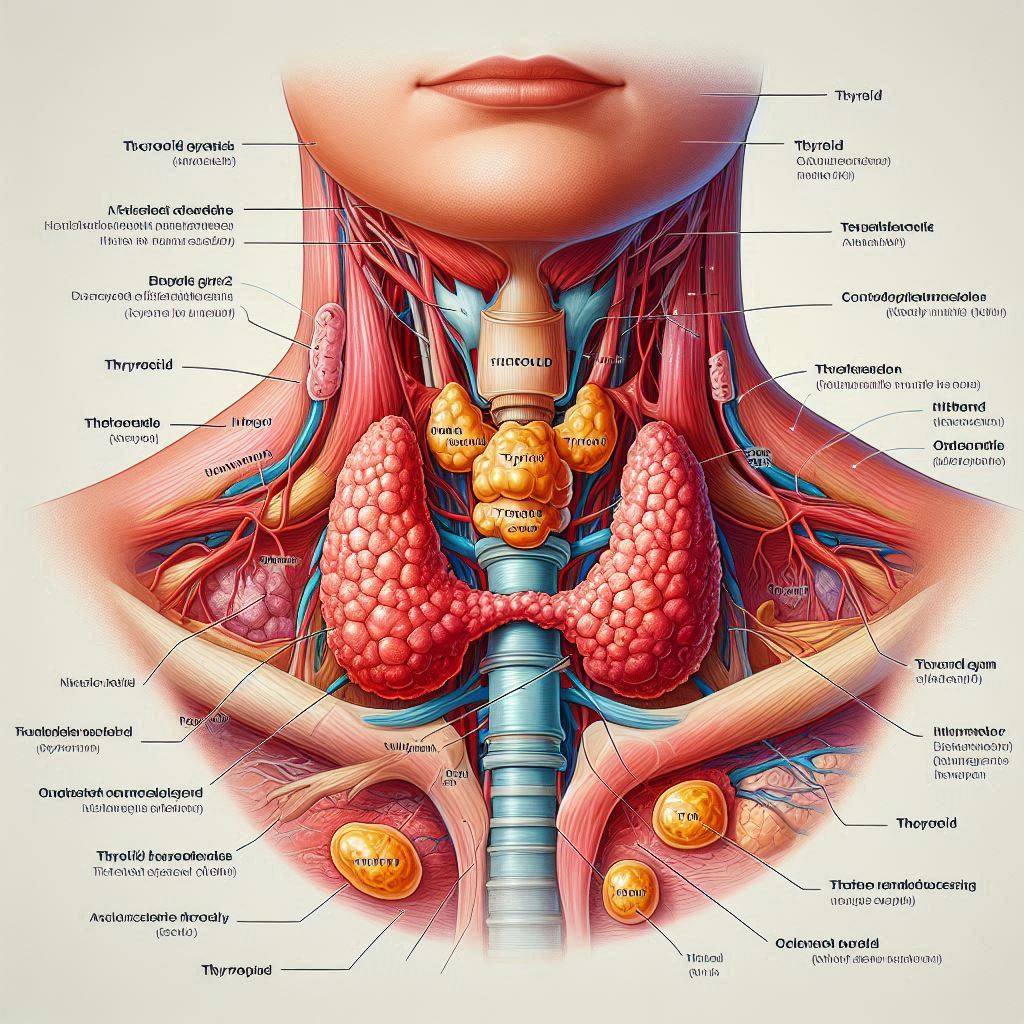Hypothyroidism (Underactive Thyroid): Everything You Need to Know

Hypothyroidism, or an underactive thyroid, is a condition that affects many individuals, leading to a variety of symptoms. Understanding this disorder is crucial for effective management and treatment, ensuring that those affected can lead healthy lives.
In this article, we will explore the key aspects of hypothyroidism, covering its symptoms, causes, diagnosis, and dietary considerations.
What is hypothyroidism?
Hypothyroidism occurs when the thyroid gland does not produce enough hormones. The thyroid, located in the neck, plays a vital role in regulating metabolism, energy levels, and overall health. When it becomes underactive, various bodily functions can be affected.
Individuals with hypothyroidism may experience a range of symptoms, including fatigue, weight gain, and sensitivity to cold. This condition can significantly impact quality of life if left untreated.
In many cases, hypothyroidism is a result of autoimmune conditions, such as Hashimoto's thyroiditis, where the body's immune system attacks the thyroid gland.
How common is hypothyroidism?
Hypothyroidism is relatively common, particularly among women and older adults. Studies suggest that approximately 4.6% of the U.S. population aged 12 and older has hypothyroidism.
Moreover, the prevalence increases with age, especially in individuals over 60. It is estimated that about 10% of this demographic may be affected by this condition.
Understanding the statistics around hypothyroidism is essential for recognizing its impact on public health.
Who is more likely to develop hypothyroidism?
Several factors can increase the risk of developing hypothyroidism, including:
- Age: Individuals over 60 are at a higher risk.
- Gender: Women are more likely than men to develop this condition.
- Family history: A family history of thyroid disease may increase susceptibility.
- Autoimmune conditions: Those with other autoimmune diseases are at greater risk.
- Prior thyroid issues: Individuals with a history of thyroid problems are more likely to experience hypothyroidism.
Understanding these risk factors is crucial for early diagnosis and treatment.
What are the symptoms of hypothyroidism?
Symptoms of hypothyroidism can vary widely among individuals. Some common symptoms include:
- Fatigue: A pervasive sense of tiredness that doesn't improve with rest.
- Weight gain: Unexplained weight gain or difficulty losing weight.
- Sensitivity to cold: Increased intolerance to cold temperatures.
- Dry skin and hair: Skin may become dry, and hair may thin.
- Constipation: Digestive issues can occur, leading to constipation.
It's important for individuals experiencing these symptoms to consult with a healthcare provider for further evaluation.
What causes hypothyroidism?
Hypothyroidism can be caused by several factors, including:
- Autoimmune diseases: Conditions like Hashimoto's thyroiditis can damage the thyroid gland.
- Iodine deficiency: Iodine is essential for thyroid hormone production, and a deficiency can lead to hypothyroidism.
- Medications: Certain medications can interfere with thyroid function.
- Radiation therapy: Treatment for cancers can affect the thyroid gland.
Identifying the underlying cause is crucial for effective treatment and management.
How is hypothyroidism diagnosed and treated?
Diagnosis of hypothyroidism typically involves blood tests to measure levels of thyroid hormones, particularly thyroid-stimulating hormone (TSH) and thyroxine (T4). High TSH levels and low T4 levels typically indicate hypothyroidism.
Treatment usually consists of hormone replacement therapy, where synthetic thyroid hormones are prescribed to restore normal hormone levels. It is essential for patients to have regular follow-up appointments to monitor hormone levels and adjust medication as needed.
In addition to hormone therapy, lifestyle changes and regular exercise can help manage symptoms.
What dietary factors affect hypothyroidism?
Diet plays a significant role in managing hypothyroidism. Here are some dietary recommendations:
- Iodine intake: Ensure sufficient iodine in the diet, as it is crucial for thyroid function.
- Avoid goitrogens: Foods like soy and cruciferous vegetables can interfere with thyroid function in large amounts.
- Regular meals: Maintaining a balanced diet with regular meals can help manage symptoms.
- Stay hydrated: Adequate hydration is essential for overall health.
Consulting with a healthcare provider or nutritionist can help create a personalized dietary plan.
What do you need to know about an underactive thyroid?
An underactive thyroid, or hypothyroidism, affects the body's metabolism and can lead to a variety of symptoms. It is important to be aware of the signs, risk factors, and treatment options available to manage this condition effectively.
What are the worst symptoms of hypothyroidism?
The most debilitating symptoms of hypothyroidism can include extreme fatigue, significant weight gain, and depression. In severe cases, untreated hypothyroidism can lead to more serious complications, such as myxedema coma, which is life-threatening.
What should you not do if you have hypothyroidism?
If you have hypothyroidism, it’s essential to avoid skipping medication doses, as this can disrupt hormone levels. Additionally, be cautious with dietary choices, particularly foods that can interfere with thyroid function, such as processed foods high in sugar.
What is the one thing you should be eating for your thyroid every morning?
Incorporating iodine-rich foods, such as seaweed or iodized salt, into your breakfast can be beneficial for thyroid health. These foods support the production of thyroid hormones, essential for maintaining balance in the body.

Leave a Reply